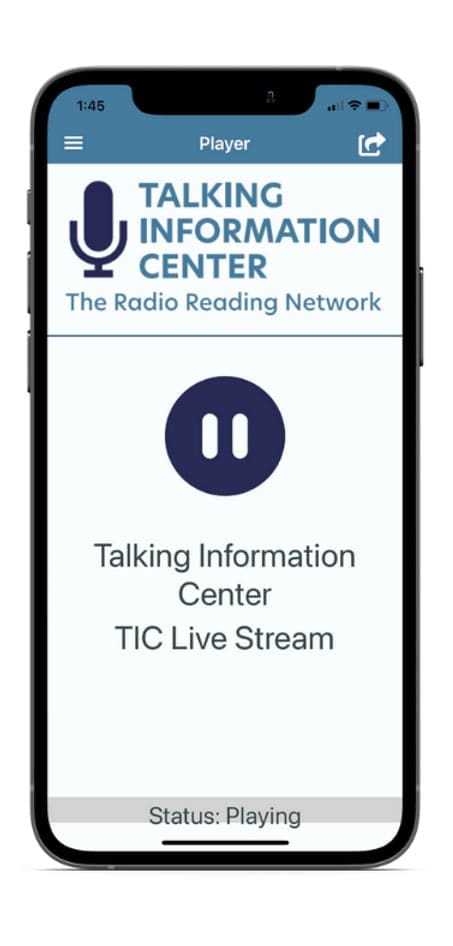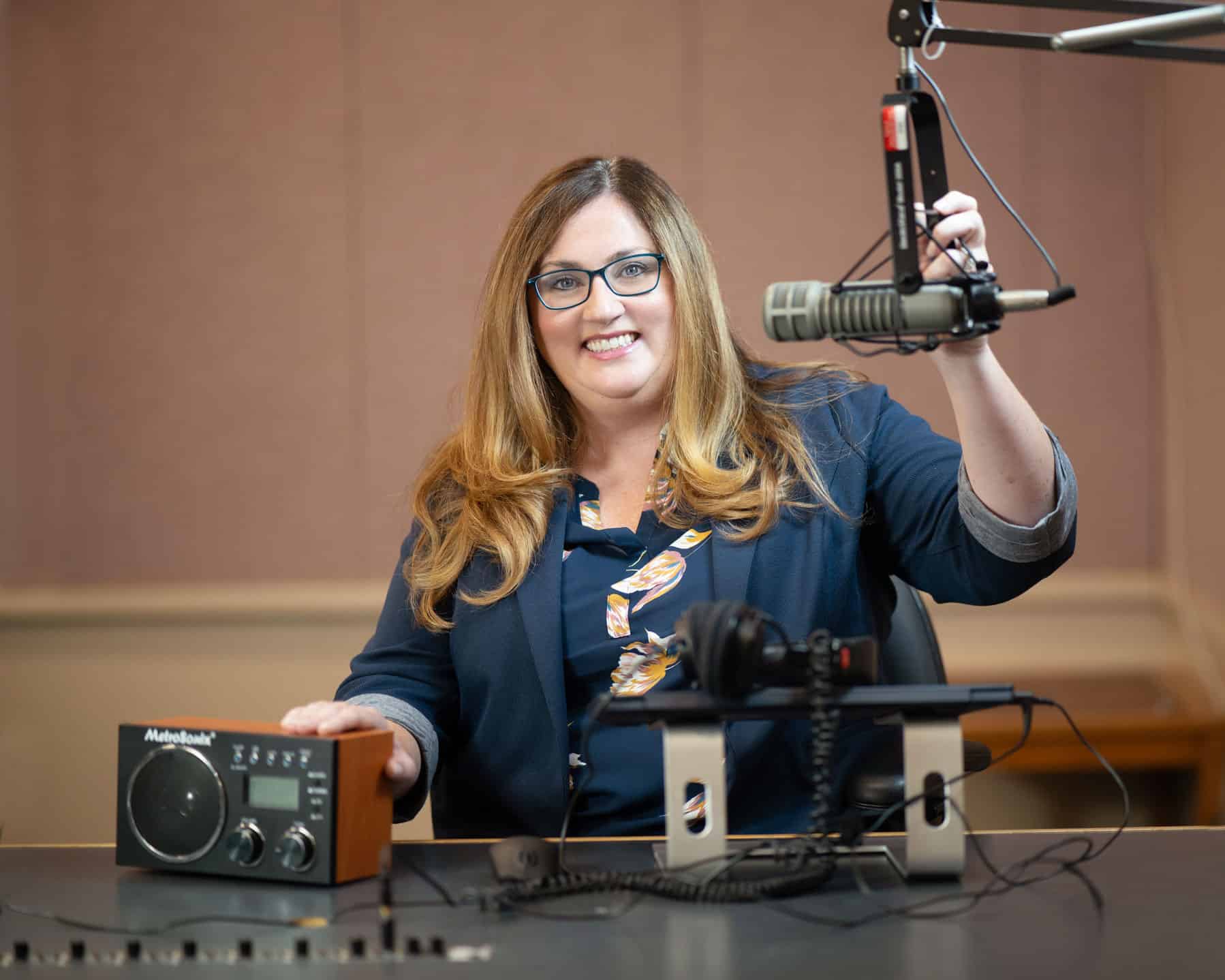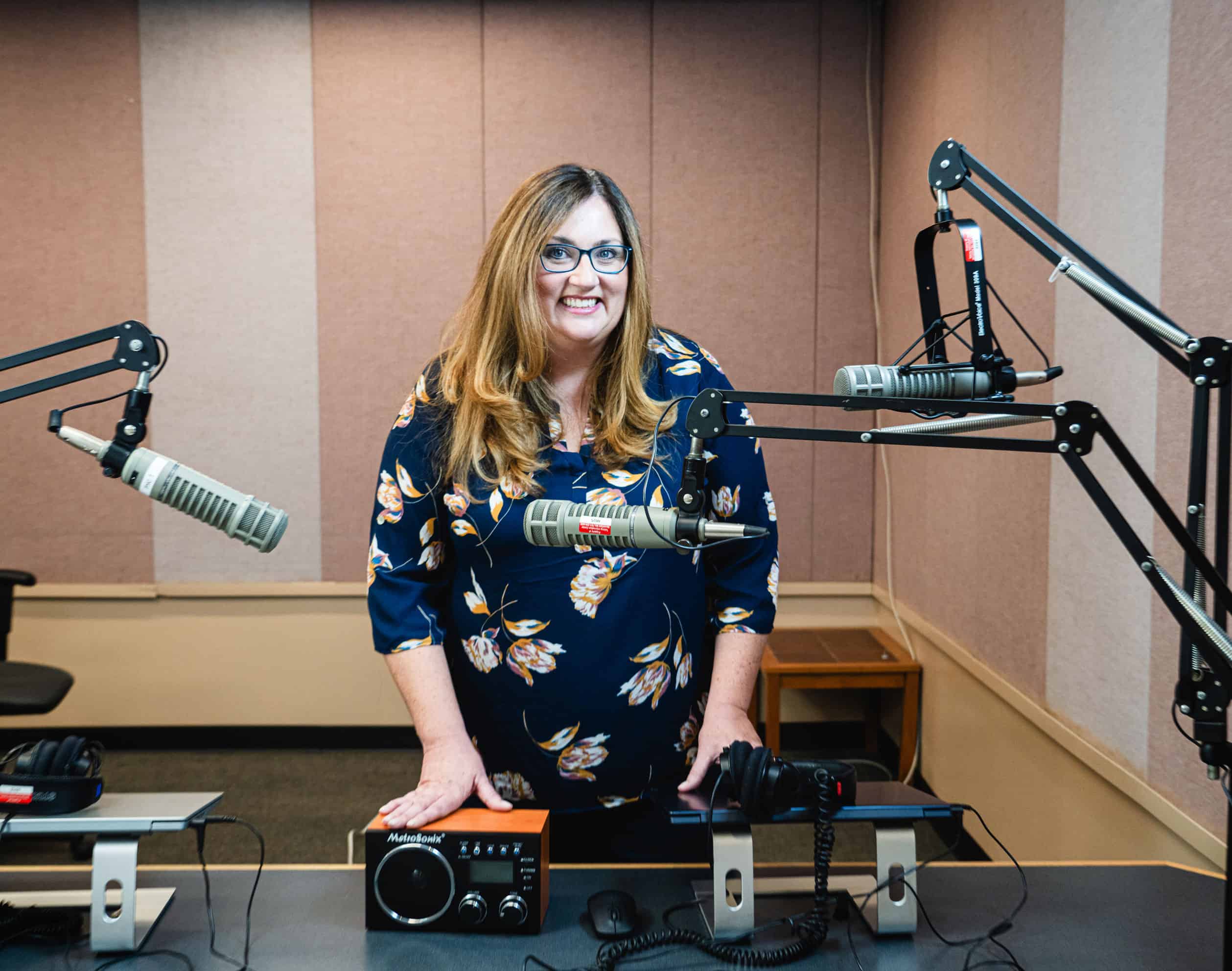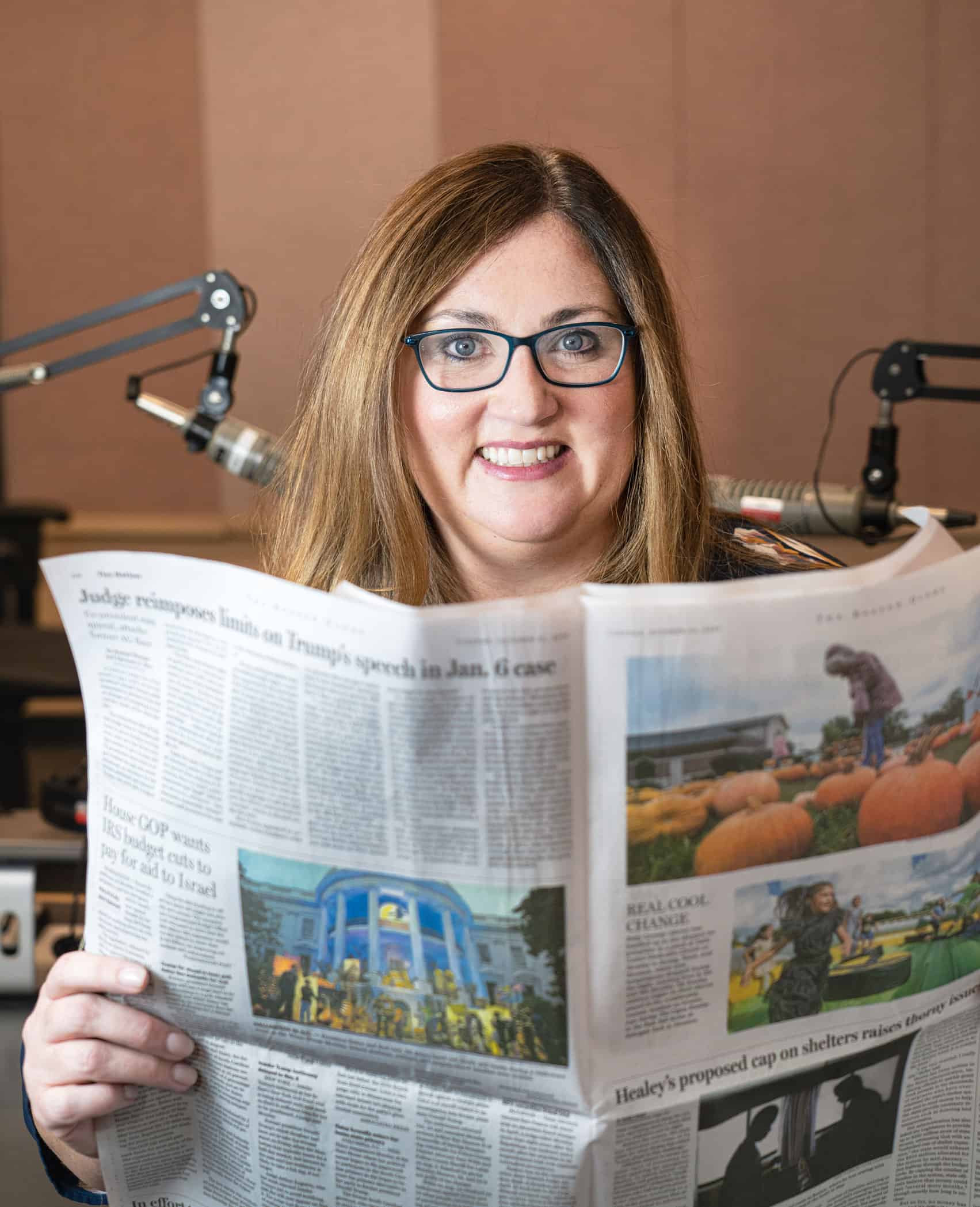Now at the helm of the Talking Information Center, new Executive Director Jacqueline Porro is focused on expanding the organization’s reach and increasing public awareness.
Hanover resident Jacqueline Porro spent 16 years working as an attorney before pivoting into a career in nonprofit leadership in 2017. Inspired to work in a mission-driven environment, she recently took over the reins at the Talking Information Center (TIC), a radio/broadcast reading service headquartered at WATD studios in Marshfield. Established in 1978 and powered by a dedicated team of volunteers, the organization provides human-voiced broadcasts of local news, articles, and items of interest to visually impaired and otherwise disabled listeners throughout Massachusetts.
You recently took over as the new Executive Director at the Talking Information Center (TIC). What attracted you to this role?
Empowering blind, low vision and print impaired people and providing a better quality of life through human voice broadcast of news and information that isn’t otherwise accessible is an incredible mission. Having the opportunity to think strategically about this need in our community is an honor. Also, the Talking Information Center has had very little employee turnover in the past 45 years of operation and it is a true privilege to be their Executive Director now. I think this was a perfect moment of timing and geography – TIC needed a director for their Marshfield operation at just the right time for me to make a transition.
Can you tell me a little about your prior work as an attorney? What was your area of focus?
From a very young age I have wanted to advocate for people—my second grade essay was “why I want to be a lawlor”! I knew I wanted to work for people before I could even spell the word “lawyer.” I practiced for about 16 years. My journey began in the D.A.’s Office and, as I grew in my career, I began to work for kids with various intellectual and developmental challenges. I did a lot of advocacy work in the public schools. My later years of practice working for kids and families was the highlight of my legal career.
How did your experience working in disability law inspire you personally/professionally?
Promoting independence in disabled or otherwise marginalized populations is of utmost importance to me. Over time, I realized that I am a very big picture thinker who would work well on a larger scale. Going from working one on one with individuals to a mission-driven environment was a natural next step for me. That’s how I found my true passion in nonprofit leadership and made the jump. I love what I do now and specifically working with and for the blind, low vision and print impaired communities with TIC because it is so people-driven. Since coming on I have met many of our more than 200 volunteer readers. I say that we promote independence and quality of life because we are “empowered by people while empowering people.”
What is your primary goal now that you’re at TIC?
I have two main goals now with the Talking Information Center. The first is to grow the public’s awareness of this necessary service for the blind and low vision community. I think with the advent of AI some people who don’t know of our work might think it is duplicative. However, many of our listeners have expressed to me that having our human voice broadcast in their home is like having a friend with them. That sort of says it all to me. There is a huge quality of life component here that should not be underestimated.
My second goal is to promote our service to the “print impaired” communities in and around the South Shore and Massachusetts. There are many people who, for some reason or another, cannot hold a newspaper or book. Parkinson’s, ALS, MS and other diseases can have this effect on people. We also have non-readers and dyslexic listeners who benefit from our broadcasts. I want our service to reach as many people as can use the service.
How can listeners access TIC programming?
Talking Information Center offers a wide range of listening options for all abilities and skill levels. We try to make our programming as accessible as possible. Since inception we have offered pre-tuned radios that pick up TIC on a hidden frequency (that’s not available on regular radio receivers) for the South Shore and Boston areas. Since the mid-1990s, Talking Information Center has been streaming our service live through our website and making all of our programs available as downloadable podcasts at TICNetwork.org. For the last decade our service has been available through smart speakers with the simple command of “play radio station Talking Information Center”. And just last year we launched a new mobile app for Apple and Android devices which offers both the live audio stream and on-demand access to all of TIC’s 300-plus programs. Finally, for anyone without a radio, smartphone or smart speaker, Talking Information Center has our service available live through a basic telephone number: 781-834-5836.

What does the new TIC app offer?
The Talking Information Center mobile app first launched about 5 years ago and at that time it was just a basic program to give listeners access to our live audio feed. Last year, thanks to an anonymous donor, we did a complete redesign using a local app developer and now the app offers both the live audio stream and on-demand access to all of TIC’s programs.
Not everyone has a smartphone or computer. How can individuals go about acquiring a special receiver? What is the cost for this?
The Talking Information Center’s programming is completely free to all individuals who can benefit from our service. To acquire a special radio receiver, all listeners need to do is call our studios and request a radio. We can be reached at 781-834-4400. Radio receivers are available for pickup or, in the case that the listener is unable to pick one up, we mail them. Our ability to provide these radios is available due to the generosity of our donors.
What are the benefits of having human volunteer readers rather than automated voices?
Human voice broadcasts are personal and lend themselves to a feeling of connectedness that an artificial voice cannot achieve. But I also think the benefit of having human voice volunteers is that the seeing population gets to have an impact on the blind and low vision population by reading to them. Building bridges and awareness in our communities makes us stronger as a society.
You had a child who experienced vision impairment at a young age. Did this experience influence your decision to join TIC?
For sure. My values and ideals aligned with the Talking Information Center because I believe in building awareness for the purpose of promoting independence. But certainly, having a child who experienced a vision impairment in his early years gave me a heart for the blind and low vision community. I find that personal connection is so important for issue advocacy. I think our volunteers are some of the Talking Information Center’s best advocates because they build a personal connection to our organization and the people we get to serve. So many people have or will have a loved one who becomes visually impaired or legally blind (the average age for legal blindness in Massachusetts is 81). Our service really reaches so many – it provides comfort to family members and friends who support someone with this challenge and it is a lifeline for many who are blind, low vision or print impaired.

The Talking Information Center (TIC) was first established in 1978. Why do you think the organization has been successful in continuing its mission for so many years?
I think this has been a force in the blind, low vision and print impaired communities because there are people to serve and people who are serving. This is a necessary service so our listeners, volunteers, donors and Massachusetts legislators are dedicated to seeing it continue. TIC is completely free to our listeners and it takes a tremendous effort volunteering, fundraising and grant writing to make that happen. If it weren’t for the support of our services from donors and volunteers alike, the service would not continue. We are empowered by people and they are the reason we are here and thriving.
What are some of the ways people can get involved with TIC?
We have many opportunities for people to get active with us. We are currently looking for some people specifically interested in fundraising and event planning. We are always excited for new volunteers to read. Also, we have opportunities to serve on the board of directors.
What are you most excited about for the months ahead?
I am excited to see where we can go from here—there is certainly a huge legacy for me to build upon. We have a small but powerful office staff who make every day productive and enjoyable. I am grateful to work with such a team of professionals. I am just excited to come to work every day to be part of this mission.
For more information, visit ticnetwork.org.



